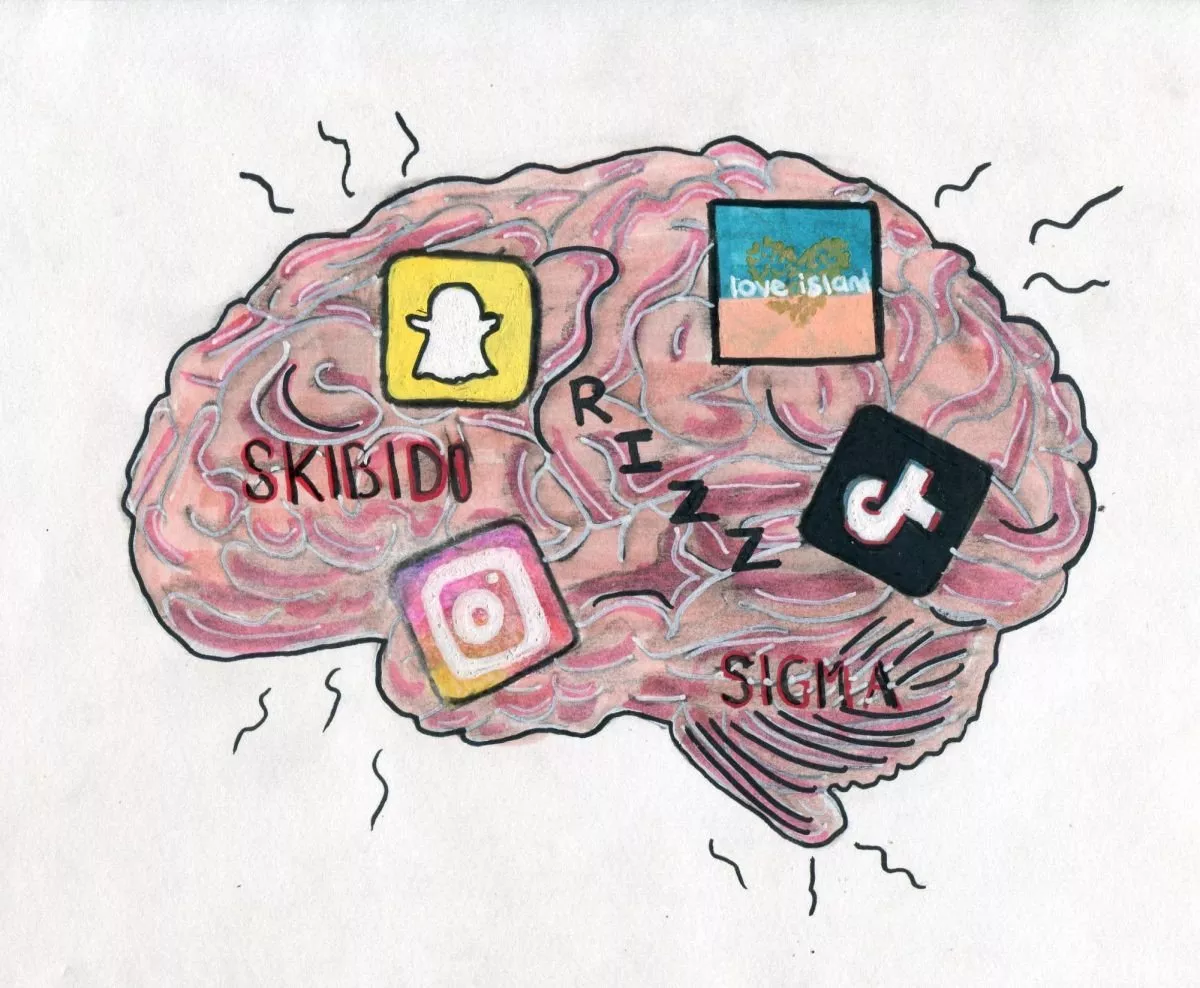Do you start your day by diving into the internet and can't stop doomscrolling until you collapse into bed at night?
Well, surprise – you're part of the generation battling brain rot.
What is ‘Brain Rot’?
In our digital age, where scrolling and memes dominate, you may have heard the term “brain rot.” The Oxford English Dictionary has even named it the Word of the Year for 2024.

Rasid Necati Aslim/Anadolu
“Brain Rot” refers to the decline of a person’s mental state caused by the “over-consumption” of trivial material, especially through the internet. It’s a result of mindlessly bingeing on meaningless content that saps your brain’s power to focus and think critically.
The term ‘brain rot’ is now synonymous with consuming low-quality content, typically online, or getting addicted to excessive digital media, such as short-form entertainment, which might damage cognitive health. Originating in the online communities of Generation Alpha and Gen Z, it’s now widely understood as a condition affecting the brain’s health due to the constant, mindless consumption of trivial internet content. It was crowned Oxford’s Word of the Year, beating out other contenders like “demure” and “romantasy.”
@ctvnews Many of us have felt it, and now it's official: 'brain rot' is the Oxford dictionaries' word of the year. #oxford #wordoftheyear #brainrot #dictionary #news #ctvnews
♬ original sound - CTVNews
As defined by the Oxford University Press, brain rot is the “supposed deterioration of a person's mental or intellectual state, especially viewed as the result of overconsumption of material (now particularly online content) considered to be trivial or unchallenging.”
Signs of Brain Rot:
“'Brain rot' is when internet trends and jokes are going through your mind constantly. It's the inability to form sentences without internet slang,” explains an expert. “It infiltrates your life and you don't even know you're doing it at some point.”
@scottkress_ i forget not everyone is chronically online 😔 (ib @ʅ(◞‿◟)ʃ!!)
♬ original sound - scottkress
For children, this manifests as reduced attention spans, difficulty focusing, and poor academic performance. Adults often experience forgetfulness, irritability, and a reliance on digital devices for memory and entertainment. Essentially, brain rot suggests mental saturation, where the brain fixates on trivial, irrelevant topics. Meme culture is a breeding ground for this.
How to Avoid Brain Rot
Brain rot is common in today’s hyper-connected world, where screens dominate our lives. However, it’s not inevitable, and there are ways to prevent it. For adults, maintaining a balance between digital consumption and engaging in activities that stimulate the mind is key to preventing this cognitive decline. Here are seven morning habits to help:
Get Ample Sleep
Sleep deprivation accelerates brain rot by impairing your ability to deal with stress, dulling your thinking, and causing forgetfulness. Lack of sleep affects memory, learning, and attention. In contrast, ample sleep improves clarity, performance, and refines your brain’s ability to adapt to new challenges, setting the stage for a sharper mind.
Practice Mindfulness
Mindfulness is a powerful antidote to mindless internet consumption. Meditation and deep breathing exercises help keep your focus sharp and prevent your mind from wandering into endless virtual spaces. Studies show that just 20 minutes of meditation can reduce cortisol levels by 25%, making you less prone to errors and more focused. Over time, it improves your ability to stay calm under pressure.
Boost Blood Flow
Sedentary behavior contributes to brain rot, so don’t remain a desk zombie all day. Physical exercise is vital for stimulating blood flow to the brain, which keeps you happy, creative, and mentally agile. Regular movement, whether through walking, stretching, or aerobics, enhances circulation and slows down cognitive decline, including memory loss and dementia.
Spend Time Outdoors
Green time beats screen time, and your brain thrives in nature. Studies show that individuals who spend at least two hours a week in nature have better cognitive function and psychological well-being. Being in natural environments improves the prefrontal cortex, making it more efficient and able to think clearly. A walk in the park can boost both mood and mental health.
Eat Good Food
Junk food and ‘food noise’ contribute to brain rot, while brain-boosting foods improve your mood, health, and focus. Proteins like meats, poultry, and eggs stabilize blood sugar, providing amino acids that help the brain form neurotransmitter pathways. Omega-3 fatty acids, found in fish like salmon and mackerel, lift your mood. Vitamin B, from sources like eggs, fish, and avocados, supports brain function, while vitamin D keeps your mood stable. Eating these healthy foods can ensure your brain remains sharp.
Clean the Chaos
The best gift you can give your brain this holiday season is some order. Multitasking might seem efficient, but it actually harms your brain’s focus. When you juggle tasks, you force your brain to constantly shift attention, reducing productivity by up to 40%. Multitasking leads to fragmented thinking, brain fatigue, and ultimately, brain rot. Focus on one task at a time for better efficiency.
Ensure Psychological Safety
Your brain thrives in environments that feel safe. Fear and uncertainty prevent your brain from focusing on tasks at hand. Work cultures that prioritize psychological safety—where employees feel secure and engaged—help foster better brain health. Eliminating fear and stress from your environment allows your mind to stay sharp and productive









COMMENTS
Comments are moderated and generally will be posted if they are on-topic and not abusive.
For more information, please see our Comments FAQ